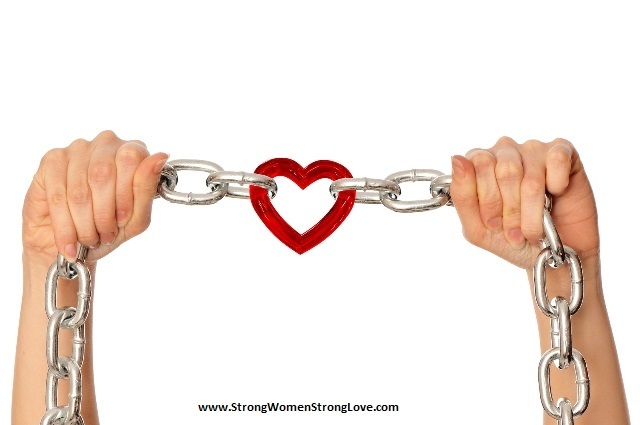by Strong Women Strong Love | Mar 17, 2014 | Persistent Pressures |
 Are you stressed out? You have plenty of company.
Are you stressed out? You have plenty of company.
Although we’re wired for connection, stability and operating within certain limits, in recent decades, the pressure to ignore this biological reality has increased. As a result, stress is running rampant many areas of our lives, even our marriages. Researchers Dr. Lisa Neff and Dr. Benjamin Karney warn that relationships exposed to excessive stress have a higher chance of failing, so it’s important to get a handle on stress.
Here are some signs of stress in your marriage:
- Every little thing sets you off. Neff and Karney’s research found that chronically-stressed couples tend to be much more reactive to the normal ups and downs of their relationships. This finding was even stronger for women. What this means is that you may, for example, respond a little too defensively to the “tone” in your partner’s voice. And those dirty socks on the floor? They may just push you right over the edge!
- You’re focused on the negative. Studies show that under heavy stress, couples have trouble seeing the positives in their relationship and usually magnify anything negative that is happening. So, even though your husband stopped by the store to pick up a gallon of milk like you asked him to, all you can think of is that he got home late.
- You’re a control freak. When stressed, many of us get more rigid and judgmental. In a momentary desire to feel some sense of control, we may lose touch with the spirit of kindness and flexibility that nourishes a marriage.
- You feel bad physically. Does any of this sound familiar? You pick up every bug going around. Your jaws or shoulders are always clenched. You have a constant headache or churning stomach. You notice your heart racing. These are all ways that stress can manifest itself in our bodies. Health problems like these drain our energy, leaving us less to give to our marriages.
- You’re emotionally worn down. Chronic stress can also break down your emotional health, sometimes causing feelings of anxiety, depression or constant agitation. If you are struggling emotionally, it’s hard to be a supportive, compassionate partner in your marriage.
- You don’t seem like yourself. Does it seem like your relationship used to be easier? Unfortunately, because of the way the brain works, even if you have excellent relationship and communication skills, it is very hard to draw on those skills when overwhelmed. Just like a drowning person, when you are super stressed, all you can think of is survival, not how you’re going to phrase something so it doesn’t hurt your husband’s feelings.
It’s important to be aware of the ways stress may be hurting your relationship. In our next blog, we’ll look at how to relieve this stress, and make your marriage healthier.
by Strong Women Strong Love | Mar 6, 2014 | Personal Power |
 I’ve been practicing as a psychologist for almost 20 years now and can’t help but notice that a few mental roadblocks typically stop people from working on a struggling marriage. Today, I want to highlight a few of these mental barriers in hopes that you’ll move them out of the way, and take action to improve your relationship.
I’ve been practicing as a psychologist for almost 20 years now and can’t help but notice that a few mental roadblocks typically stop people from working on a struggling marriage. Today, I want to highlight a few of these mental barriers in hopes that you’ll move them out of the way, and take action to improve your relationship.
ROADBLOCK ONE: If we really love each other, we don’t need to work on our marriage. Marriage problems are not always about a lack of love in the relationship. Sometimes people who love each other deeply still end up divorced. The reality is that marriage these days is confusing! It’s not your imagination: Both the stress we are under and the huge expectations we have of marriage take a heavy toll on our relationships. Unfortunately, it can be a dangerous thing to leave your relationship to chance. Be sure to deliberately focus on your marriage from time to time, remembering that love is important, but may not be enough. When problems do crop up in your relationship, make it a priority to deal with them.
ROADBLOCK TWO: There’s something really wrong with us if we need help with our marriage. I tell my clients frequently that it’s the smartest and strongest people who seek help. Needing a hand with your relationship does not mean you are weak. In fact, because seeking help can make you feel vulnerable, you could say it takes courage to actually take this step. As someone who regularly gets to take a peek “behind the scene” of many relationships, I want to reassure you that even though it may seem like everyone else “has it all figured out,” it’s simply not true!
ROADBLOCK THREE: If our relationship hasn’t gotten better by now, what’s the point? Even when a marriage is not working, partners often keep doing what they’ve always done, simply out of habit. Change is hard, especially if you are clinging to old routines or don’t know which direction you are going. When you clearly understand exactly what helps and hurts a marriage, seeing new, more effective, behaviors quickly produce different results can jump-start change.
ROADBLOCK FOUR: Men and women are different, so we’ll never “get” each other. Contrary to popular opinion, men and women are not from different planets! We are all human, and need similar conditions to open up, including trust, acceptance, kindness, respect and open-mindedness. Don’t let stereotypes about men and women get in the way of your trying to connect as human beings.
ROADBLOCK FIVE: If we just work harder, we can eventually have the perfect life together. In my practice, I see a big gap between what my clients think they should be able to accomplish and what they can actually achieve. Most work incredibly hard chasing their dreams, but fail to notice that seeking perfection breeds so much stress that it ultimately undermines their marriage. Being busy makes it very hard to deal with any problems in the relationship. There is no such thing as perfect. The best anyone one of us can ever hope for is “good enough.”
 Are you stressed out? You have plenty of company.
Are you stressed out? You have plenty of company. I’ve been practicing as a psychologist for almost 20 years now and can’t help but notice that a few mental roadblocks typically stop people from working on a struggling marriage. Today, I want to highlight a few of these mental barriers in hopes that you’ll move them out of the way, and take action to improve your relationship.
I’ve been practicing as a psychologist for almost 20 years now and can’t help but notice that a few mental roadblocks typically stop people from working on a struggling marriage. Today, I want to highlight a few of these mental barriers in hopes that you’ll move them out of the way, and take action to improve your relationship.
